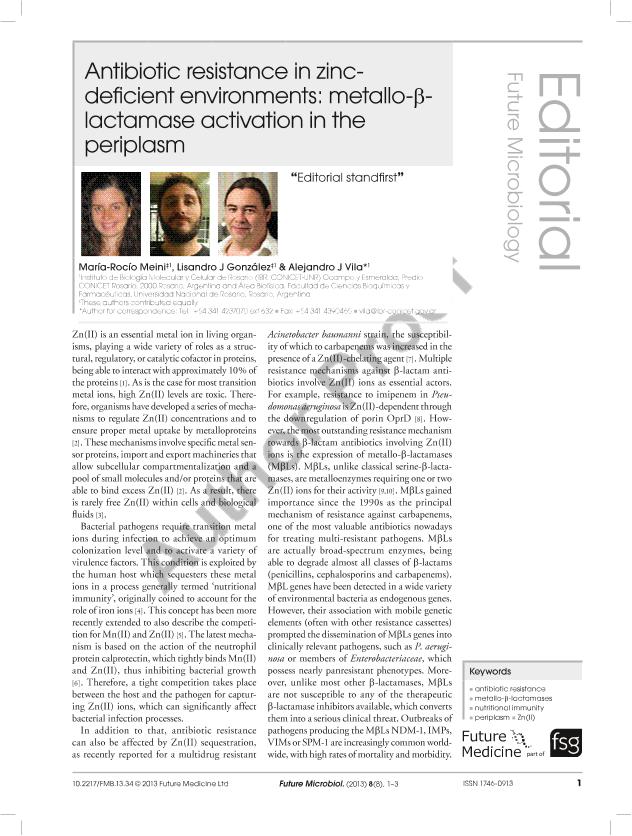Artículo
Antibiotic resistance in Zn(II)-deficient environments: Metallo-β-lactamase activation in the periplasm
Fecha de publicación:
08/2013
Editorial:
Future Medicine
Revista:
Future Microbiology
ISSN:
1746-0913
Idioma:
Inglés
Tipo de recurso:
Artículo publicado
Clasificación temática:
Resumen
Zn(II) is an essential metal ion in living organisms, playing a wide variety of roles as a structural, regulatory or catalytic cofactor in proteins, that is able to interact with approximately 10% of the entire proteome in humans [1]. As is the case for most transition metal ions, high Zn(II) levels are toxic. Therefore, organisms have developed a series of mechanisms to regulate Zn(II) concentrations and to ensure proper metal uptake by metalloproteins [2]. These mechanisms involve specific metal sensor proteins, import and export machineries that allow subcellular compartmentalization and a pool of small molecules and/or proteins that are able to bind excess Zn(II) [2]. As a result, there is rarely free Zn(II) within cells and biological fluids [3].
Palabras clave:
ANTIBIOTIC RESISTANCE
,
NUTRITIONAL IMMUNITY
,
PERIPLASM
,
ZN(II)
Archivos asociados
Licencia
Identificadores
Colecciones
Articulos(IBR)
Articulos de INST.DE BIOLOGIA MOLECULAR Y CELULAR DE ROSARIO
Articulos de INST.DE BIOLOGIA MOLECULAR Y CELULAR DE ROSARIO
Citación
Meini, María Rocío; Gonzalez, Lisandro Javier; Vila, Alejandro Jose; Antibiotic resistance in Zn(II)-deficient environments: Metallo-β-lactamase activation in the periplasm; Future Medicine; Future Microbiology; 8; 8; 8-2013; 947-949
Compartir
Altmétricas




